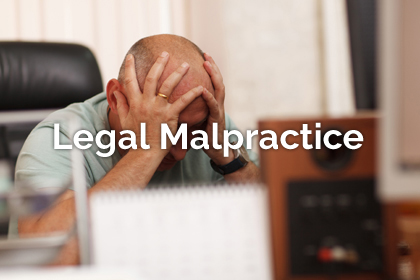The question we will address in this post is whether you can sue for legal malpractice after a case settlement. This is a complex issue.
A settlement of a lawsuit usually brings an end to all proceedings. A party who settles is supposed to be turning the page and moving on. This is not always the case.
Attorney Negligence
During a lawsuit, a lawyer is supposed conduct discovery. This includes answering written discovery requests. These are called interrogatories. It is also the attorney’s job to arrange for experts when necessary.
If a lawyer does not conduct discovery, his inaction can force a client to settle for less than the case is worth. When that happens, a settlement does not prevent a client from bringing a legal malpractice case. The reason for this is that the attorney’s failure to act occurred before the settlement.
Litigation Catastrophe
There are times in lawsuits when a party can face a catastrophe that could have been avoided. For instance, if a case is ready for trial but the attorney fails to call key witnesses, a client could be forced to settle for less value.
Similarly, if an attorney fails to bring an important claim, it can result in an undervalued settlement. These attorney failures that lead to catastrophe can also form the basis of a legal malpractice case.
Failure to Explain Settlement Terms
When a party settles a case, the attorney has an obligation to explain the terms of the settlement. A party needs to understand the terms. If they do not understand, it can for the basis for a legal malpractice case.
Unauthorized Settlement
Finally, in rare situations, an attorney may settle a case on his/her own without the client’s knowledge or consent. Such situations raise ethical and malpractice issues.
Legal Malpractice Attorney
Ronald J. Wronko, Esq., represents the victims of legal malpractice. If you wish to have your potential case analyzed to determine whether you may have a legal malpractice claim, please contact us at ron@ronwronkolaw.com, call us at (973) 360-1001, or visit our website to request a confidential case evaluation.



